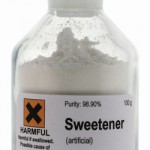 It’s something that biomedical doctors, functional-medicine doctors and naturopaths have known about for years, but the American Academy of Pediatrics is finally recognizing the links among autism and inflammation, leaky gut and autoimmunity.
It’s something that biomedical doctors, functional-medicine doctors and naturopaths have known about for years, but the American Academy of Pediatrics is finally recognizing the links among autism and inflammation, leaky gut and autoimmunity.
In this article for Talk About Curing Autism (TACA), Dr. Bob Sears gives a great play-by-play of a supplement to the November 2012 edition of Pediatrics. Here are some of the highlights from Dr. Sears’ article:
- “Clinical practice and research to date indicate the important role of GI conditions in ASDs and their impact on children as well as their parents and clinicians.”
- “Gut-brain connection, immune function, and genome-microbiome interaction.” Yes, it actually said gut-brain connection!
- “Increasingly, evidence supports a combination of changes in gut microflora, intestinal permeability (intestinal what?), inappropriate immune response, activation of specific metabolic pathways, and behavioral changes.”
- “Endoscopic analyses of children with ASD and GI symptoms have revealed the presence of a subtle, diffuse inflammation of the intestinal tract.”
- “Autoimmune responses in children with ASDs and a familial history of autoimmunity have been reported.”
- “Autoantibodies could indicate the presence of inflammatory processes and/or an autoimmune component that could affect the integrity of the mucosal barrier and contribute to decreased mucosal barrier integrity.”
- “Leaky gut.” Yes! It actually used those two foreign words that have been scoffed at for so long, and explains the research supporting this theory so that we general pediatricians can understand and begin to believe it.
- “Nutritional status and nutrient intake are inextricably related in children with autism.”
- A table on “Biomarkers as potential outcome measures” includes testing for: intestinal permeability to assess leaky gut, calprotectin for intestinal inflammation, celiac disease serology tests to assess gluten sensitivity, food allergy panels (not sure what for . . . maybe food allergies play some sort of role in all this?), organic acid testing for B12 or folate deficiency, and analysis of gut microbiota.”

 Kim chee is a traditional Korean spicy fermented cabbage dish. Fermented foods are a great way to restore your gut health.
Kim chee is a traditional Korean spicy fermented cabbage dish. Fermented foods are a great way to restore your gut health. “A growing body of research suggests that sugar and its nearly chemically identical cousin, HFCS, may very well cause diseases that kill hundreds of thousands of Americans every year, and that these chronic conditions would be far less prevalent if we significantly dialed back our consumption of added sugars.
“A growing body of research suggests that sugar and its nearly chemically identical cousin, HFCS, may very well cause diseases that kill hundreds of thousands of Americans every year, and that these chronic conditions would be far less prevalent if we significantly dialed back our consumption of added sugars. A starchy, high-carbohydrate diet is associated with the recurrence of colon cancer.
A starchy, high-carbohydrate diet is associated with the recurrence of colon cancer.  Introduction of fish between 6 and 12 months age is associated with a lower prevalence of wheezing.
Introduction of fish between 6 and 12 months age is associated with a lower prevalence of wheezing.  Listen in to my
Listen in to my  Recovery from autism is possible. Most, if not all, cases have gut dysbiosis, which is fed by the Standard American Diet (SAD) full of sugar and processed foods.
Recovery from autism is possible. Most, if not all, cases have gut dysbiosis, which is fed by the Standard American Diet (SAD) full of sugar and processed foods. There is no safe level of mercury, and it causes neurological damage, such as autism, PDD-NOS, ADHD, developmental delays and sensory processing disorder.
There is no safe level of mercury, and it causes neurological damage, such as autism, PDD-NOS, ADHD, developmental delays and sensory processing disorder. Aspartame-sweetened sodas exposed to higher temperatures turn into poisonous wood alcohol (methanol). Methanol turns into carcinogenic formaldehyde, which can cause multiple sclerosis.
Aspartame-sweetened sodas exposed to higher temperatures turn into poisonous wood alcohol (methanol). Methanol turns into carcinogenic formaldehyde, which can cause multiple sclerosis. 

